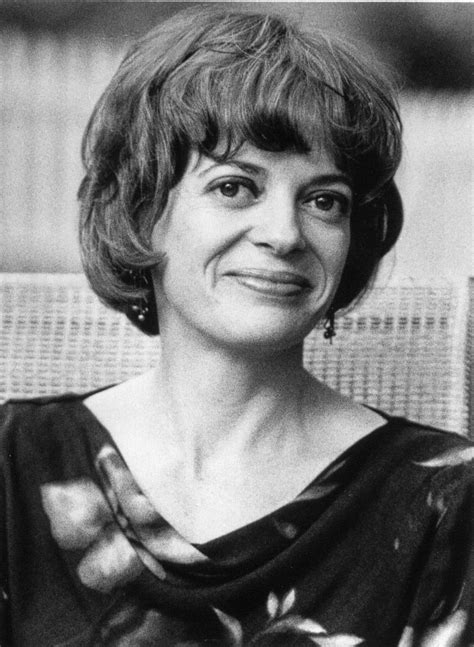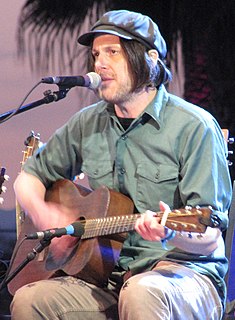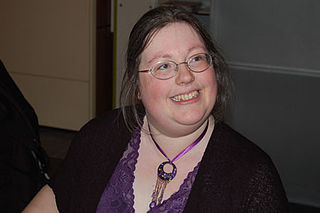A Quote by Natalie Angier
Science is not a body of facts. Science is a state of mind. It is a way of viewing the world, of facing reality square on but taking nothing on its face. It is about attacking a problem with the most manicured of claws and tearing it down into sensible, edible pieces.
Related Quotes
Science has only two things to contribute to religion: an analysis of the evolutionary, cultural, and psychological basis for believing things that aren't true, and a scientific disproof of some of faith's claims (e.g., Adam and Eve, the Great Flood). Religion has nothing to contribute to science, and science is best off staying as far away from faith as possible. The "constructive dialogue" between science and faith is, in reality, a destructive monologue, with science making all the good points, tearing down religion in the process.
In real science a hypothesis can never be proved true...A science which confines itself to correlating phenomena can never learn anything about the reality underlying the phenomena, while a science which goes further than this and introduces hypotheses about reality, can never acquire certain knowledge of a positive kind about reality; in whatever way we proceed, this is forever denied us.
Literary science fiction is a very, very narrow band of the publishing business. I love science fiction in more of a pop-culture sense. And by the way, the line between science fiction and reality has blurred a lot in my life doing deep ocean expeditions and working on actual space projects and so on. So I tend to be more fascinated by the reality of the science-fiction world in which we live.
The whole point of science is that most of it is uncertain. That's why science is exciting--because we don't know. Science is all about things we don't understand. The public, of course, imagines science is just a set of facts. But it's not. Science is a process of exploring, which is always partial. We explore, and we find out things that we understand. We find out things we thought we understood were wrong. That's how it makes progress.
One of the dangers today is that when we don't like what the facts tell us, we just attack the facts, and we undermine the credibility of institutions. That is true not just for reporting; it's true of when people are attacking the congressional budget office, or when they're attacking certain science - that's where we can get into a dangerous realm.
We can see an anthill or a roach or a flower or anything, but we have this frame where our mind recognizes an anthill and then moves on, without taking the opportunity to have the sense of awe that we could have if we really looked at it. The montage is about taking pieces of reality and rearranging them - creating new frames to make you have to stop and look at things in a fresh way. It's basically taking pieces of everyday reality and rearranging them to show people the magic that is inherent in all of these things already.
Science is much more than a body of knowledge. It is a way of thinking. This is central to its success. Science invites us to let the facts in, even when they don't conform to our preconceptions. It counsels us to carry alternative hypotheses in our heads and see which ones best match the facts. It urges on us a fine balance between no-holds-barred openness to new ideas, however heretical, and the most rigorous skeptical scrutiny of everything - new ideas and established wisdom.
Natural science is founded on minute critical views of the general order of events taking place upon our globe, corrected, enlarged, or exalted by experiments, in which the agents concerned are placed under new circumstances, and their diversified properties separately examined. The body of natural science, then, consists of facts; is analogy,-the relation of resemblance of facts by which its different parts are connected, arranged, and employed, either for popular use, or for new speculative improvements.
'The Lost Symbol' has much to impart about the mind-body problem as filtered through the work of Peter's younger sister Katherine, who more than dabbles in noetic science, or 'leading edge research into the potentials and powers of consciousness', according to the website of the real-life Institute for Noetic Science, based in Northern California.






































